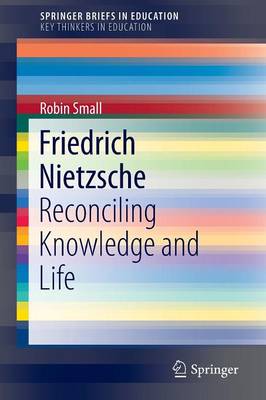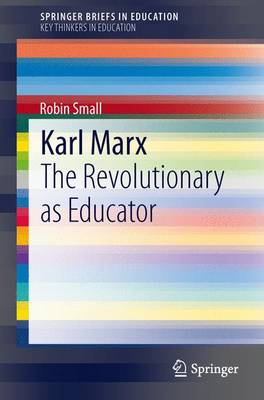SpringerBriefs on Key Thinkers in Education
2 total works
This book offers a succinct guide to Friedrich Nietzsche’s contributions to educational thought, placing them within the context of his overall philosophy and adding biographical background information that sheds light on his thinking. Topics discussed in detail include theories of knowledge and life, concepts of teaching and learning, and practice and policy issues in modern education. Friedrich Nietzsche (1844–1900) was a major Western thinker with much to say about education, both directly and indirectly. A fierce critic of the schools and universities of his time, he affirms the centrality of ‘culture’ and the exceptional individual as the true aim of education. For Nietzsche, the human predicament is characterised by the tension between knowledge and life. The task of education is to reconcile these demands, but that requires a radical rethinking of knowledge and a re-evaluation of morality. Nietzsche’s new conception of truth replaces facts with interpretations, and certainty with bold experiment. His new virtues arise out of the ‘sublimation’ of drives that are condemned by traditional morality. An education of the future promotes these aspects of individual development. Even so, Nietzsche seems to think that, in the end, it is up to each of us to engage in a broader task of self-realisation, for which he has a cryptic formula:
“Become what you are.”
This book is an introduction to Karl Marx (1818–1883) as a radical educational thinker. Marx’s own schooling and education are examined and we see how his interest in educational issues was informed by his own experience. Educational themes in Marx’s thinking are identified: the role of education within capitalist society, the contribution of education to human development and the character of education in a future society. These are placed in a historical setting by the author and related to public debates over educational policy.
Throughout his career, Marx identified education as key to the prospects of the working class. The story of this engagement adds a new dimension to the picture of his work as a philosopher, political economist and socialist revolutionary. The aspects of education that concerned Marx matched prominent features of his theoretical and political activity, and educational themes provided him with a critical application for many of his most important ideas.
The author explores Marx’s work on the British factory school system, his use of evidence from the reports of school inspectors, and the contemporary movement that led to the establishment of modern systems of public schooling. The final chapter relates Marx’s thinking to questions about the place of education in today’s society, showing how relevant it is for the twenty-first century.
These discussions contain new scholarship, draw on original sources and are written in a clear and readable style. Students in education courses at universities and colleges, educational researchers and teachers will find this examination of Karl Marx’s ideas concerning education both engaging and enlightening.

